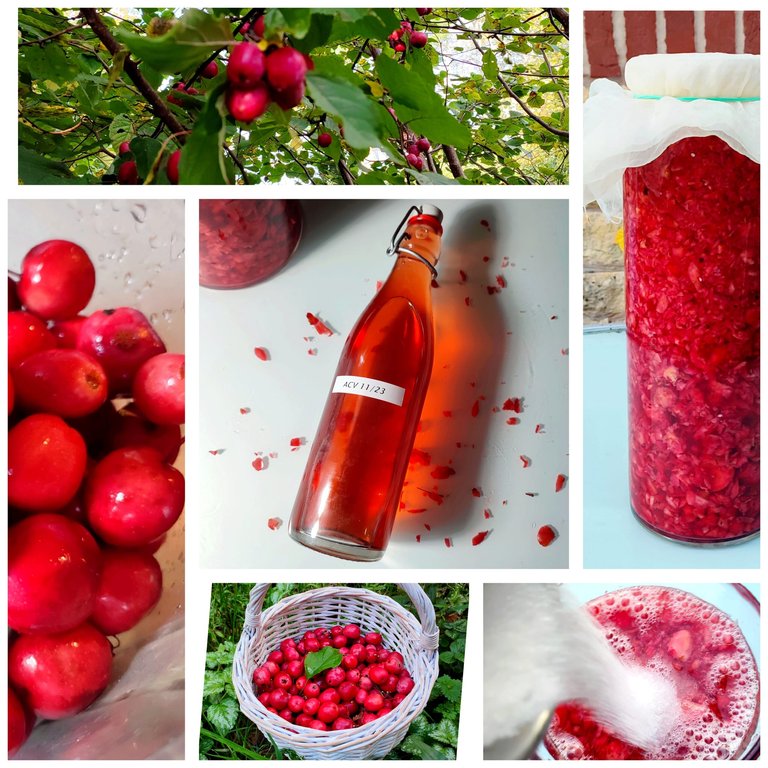
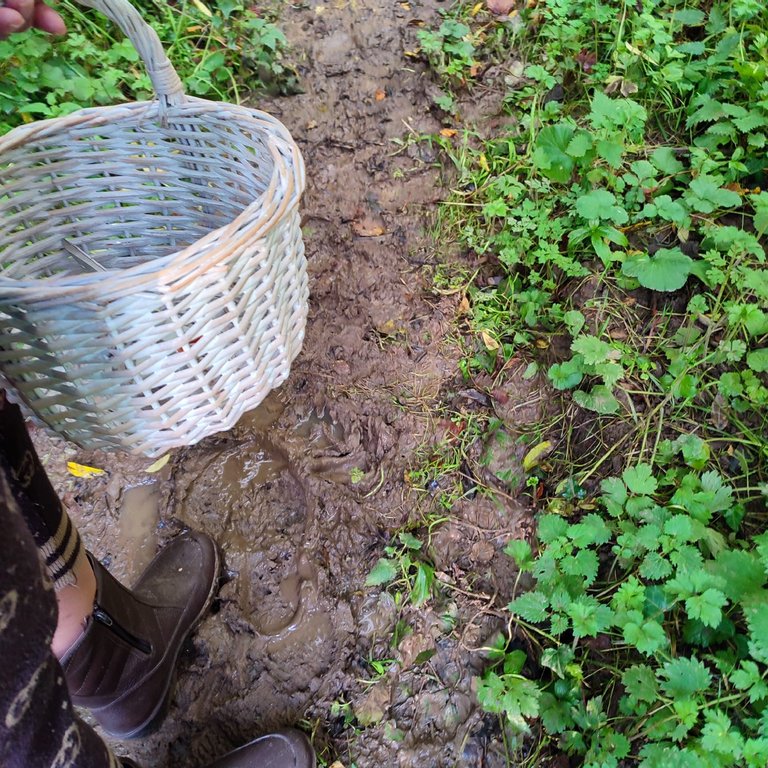
Earlier this evening, I headed out to the nearby woods, pretty muddy, but that's where the beautiful red crab apples are plentiful, with plans to turn them into vinegar!
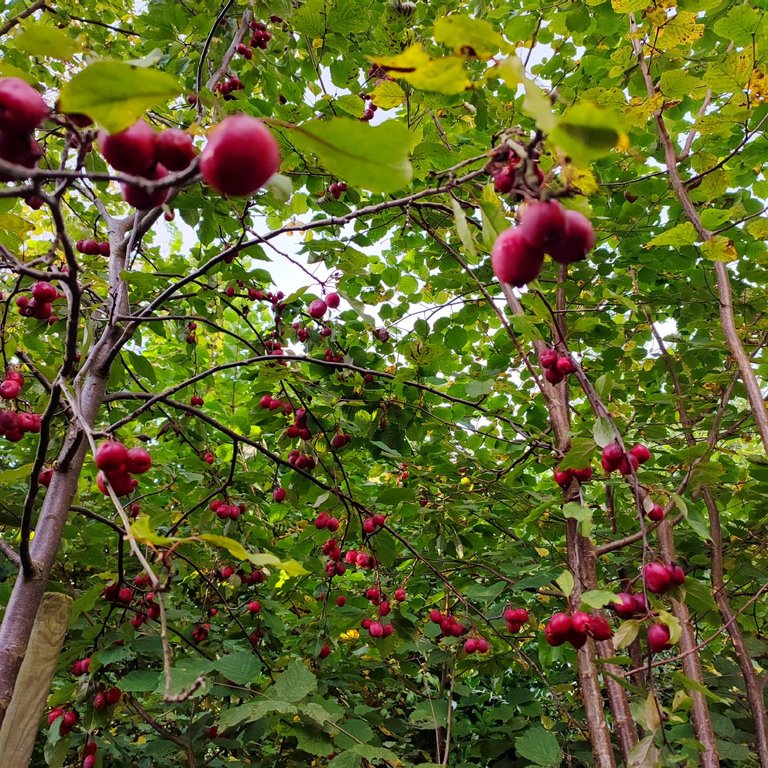
As I approached the trees, I could see them—the beautiful, tiny red crab apples, hanging on their branches, just waiting to be picked. These tart little gems
is so simple to turn into a beautiful vinegar.
I use them for so many things—preserving, skincare and haircare formulations, cooking, and even cleaning—it’s incredibly versatile. If I were to buy it from the supermarket, I’d spend a fortune, given how much I go through. So, every autumn, just as the crab apples are about to fall, I gather them up and transform them into homemade organic apple cider vinegar. It’s such a rewarding and sustainable way to stock up on something I use every day.
Apple cider Vinegar has so many benefits. Some studies suggest that consuming it can improve insulin sensitivity and lower blood sugar levels after meals. It also supports weight loss, improves heart health, aids in detoxification, boosts immunity, improves skin health, and much more!
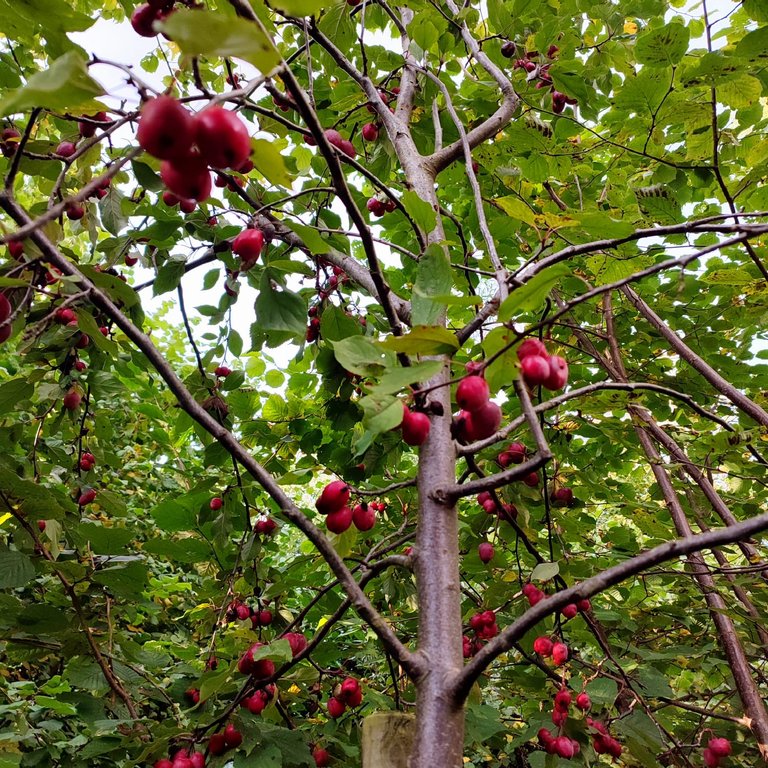
These tiny, tart apples are packed with natural acids and tannins, making them an excellent base for vinegar.
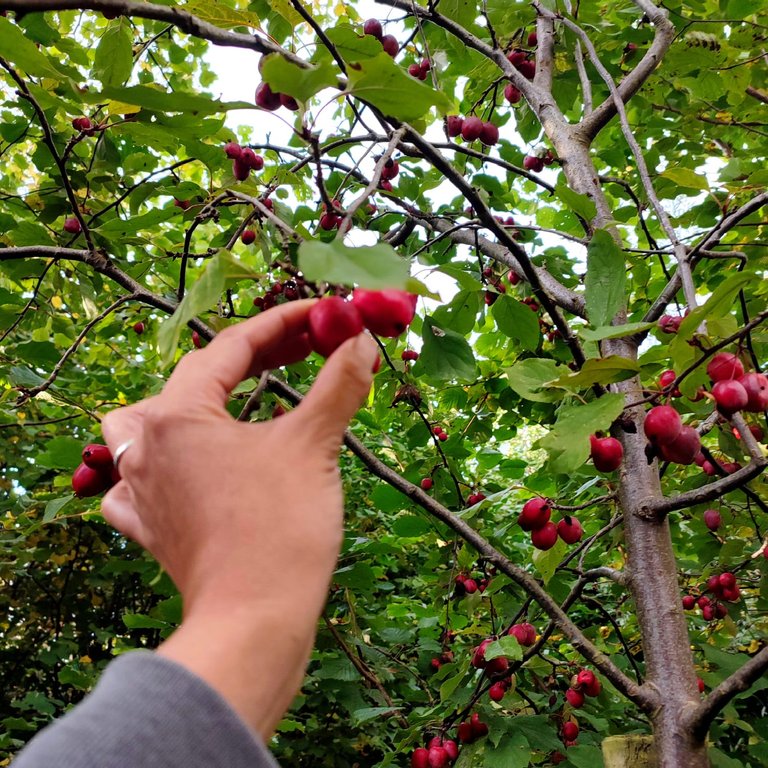
They are firm, but not long before the frost softens them, and they eventually drop on the ground.

I picked a few enough to fill my big jar.
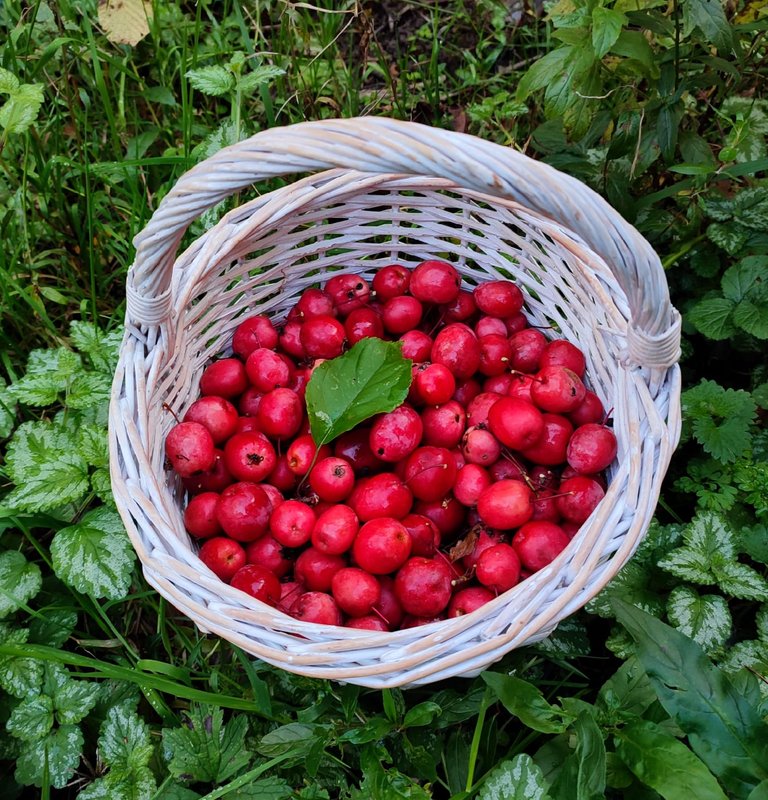
This type is much red than any crab apples around, and they imparts a beautiful colour in the vinegar.
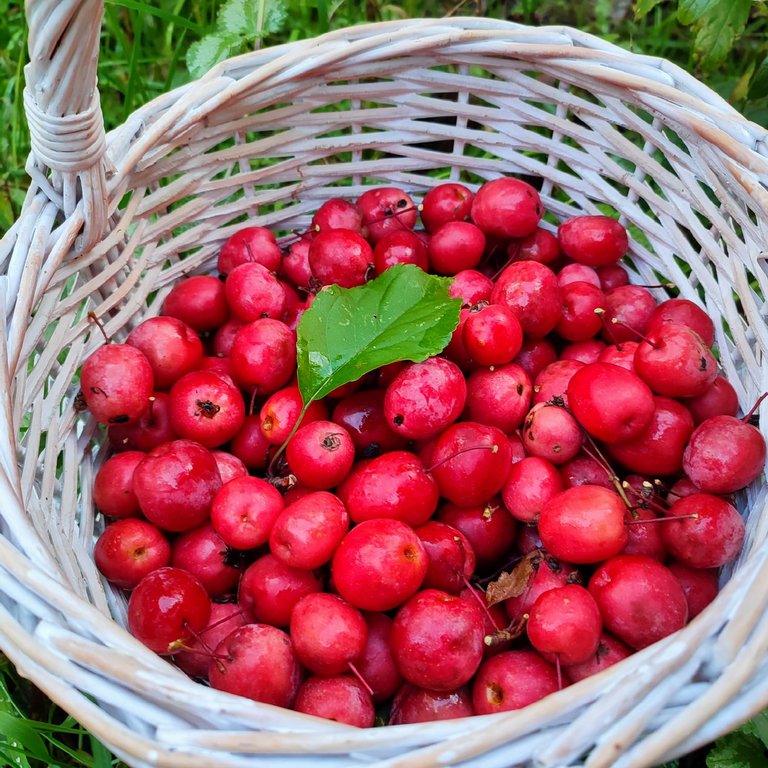
I was pleased that I timed the picking just right!
As soon as I was home, I started the process, it is similar to traditional apple cider vinegar making, but the flavour tends to be sharper and more complex due to the tartness of the crab apples.
Here’s how I do it:

Wash the crab apples briefly.

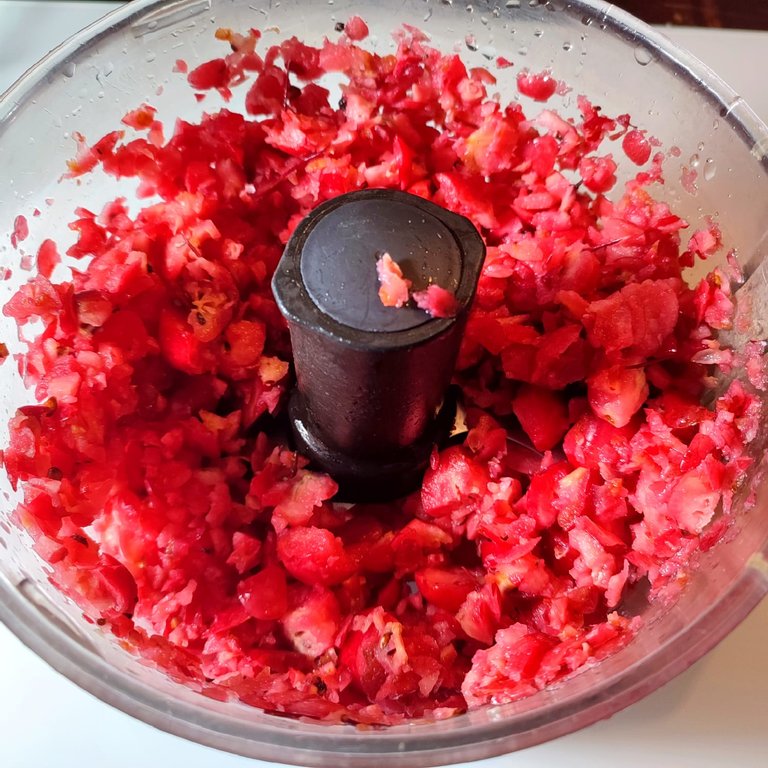
Blend them into a coarse puree—no need to remove the cores or seeds, as they contribute to the fermentation process (they contain lots of yeast!).
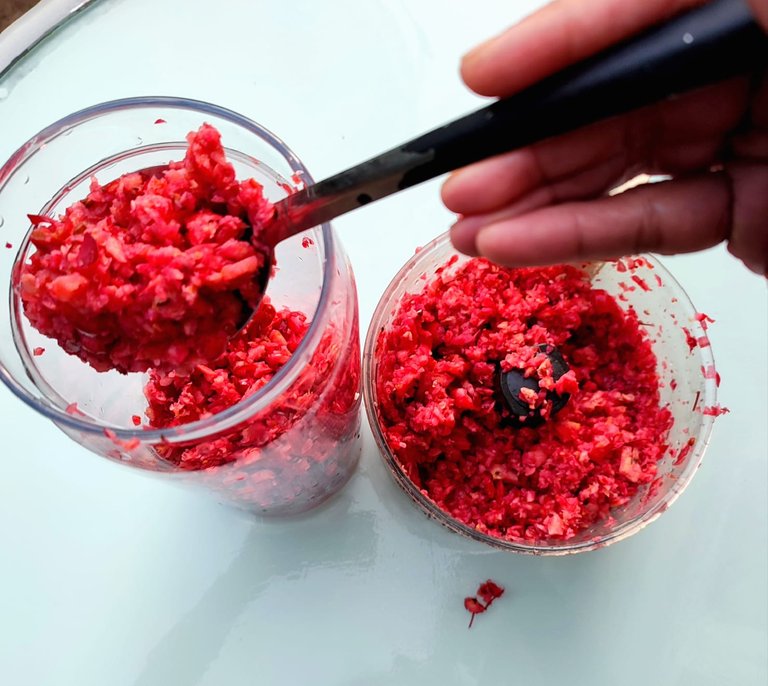
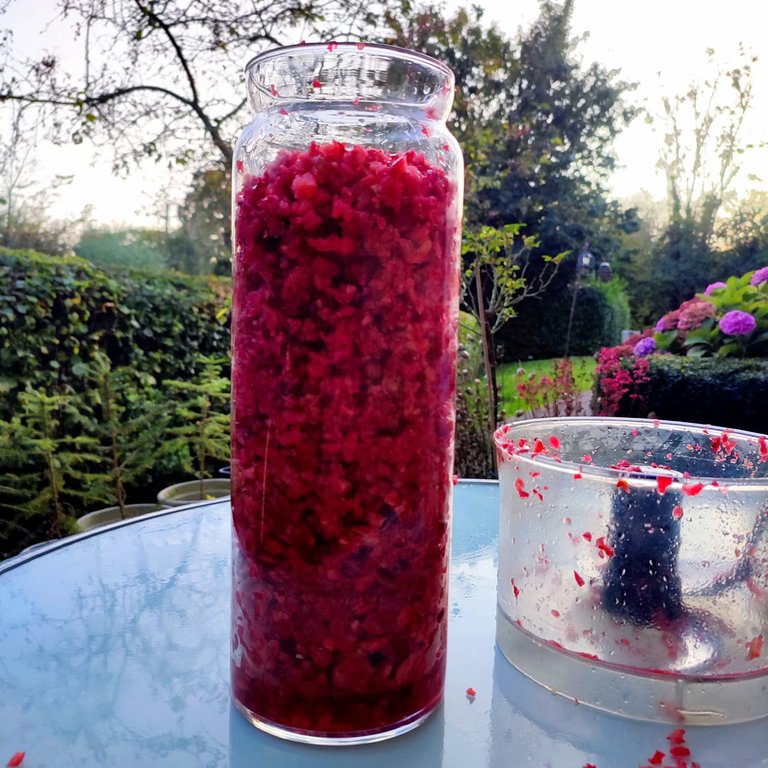
Pour the blended mixture into a clean jar or crock.
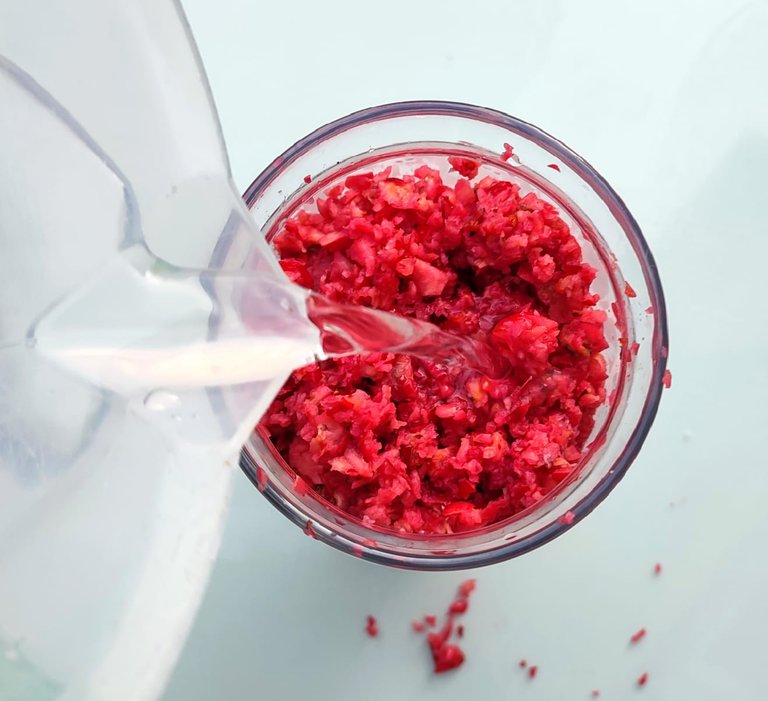
Add non-chlorinated water to cover the apple mixture completely and stir to combine.
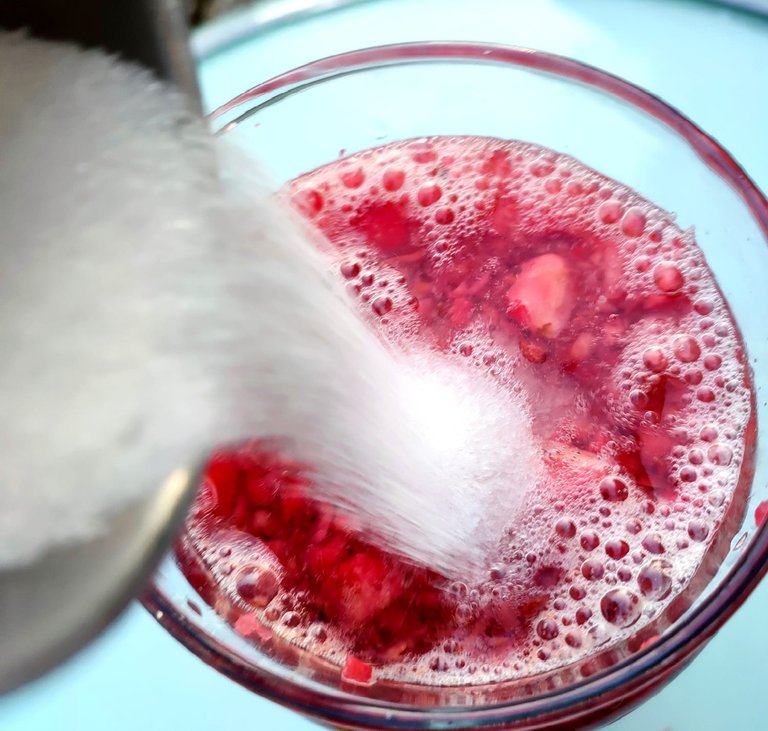
Add sugar or honey to aid fermentation (1 tablespoon per liter).
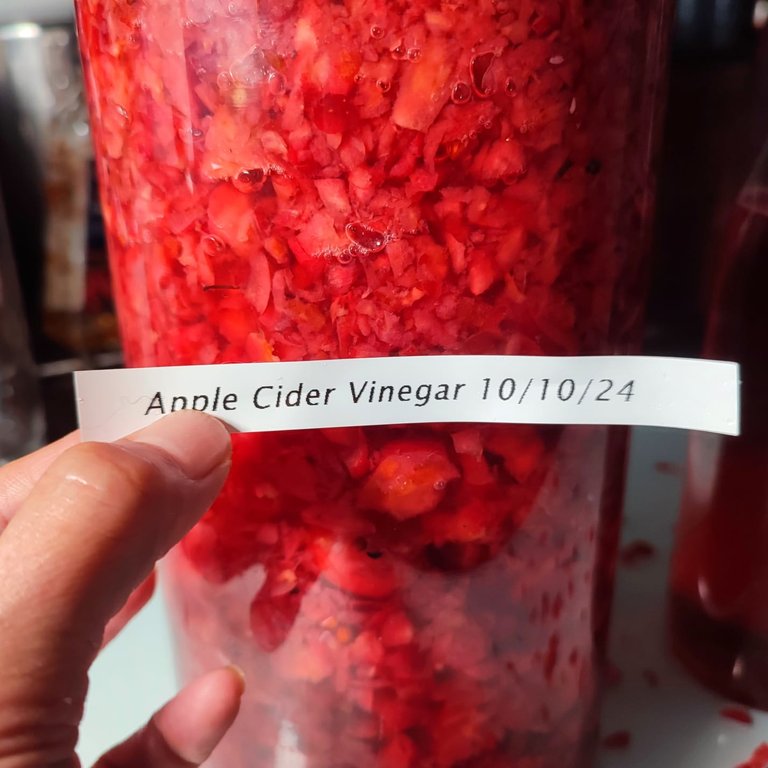
Label the jar so you know how long it has been fermenting.

Fermentation Phase 1:
Cover the jar with a breathable cloth and let it ferment at room temperature, stirring daily for about 1–2 weeks. The apple mixture will begin to ferment, turning into cider (this is when the yeast turns sugar into alcohol).
Fermentation Phase 2:
After 1–2 weeks, strain the liquid to remove the solids. Return the liquid to the jar, cover it with the cloth, and let it continue to ferment for another 3–6 weeks. Start tasting the vinegar after about 3 weeks to see if it has reached your desired acidity level.
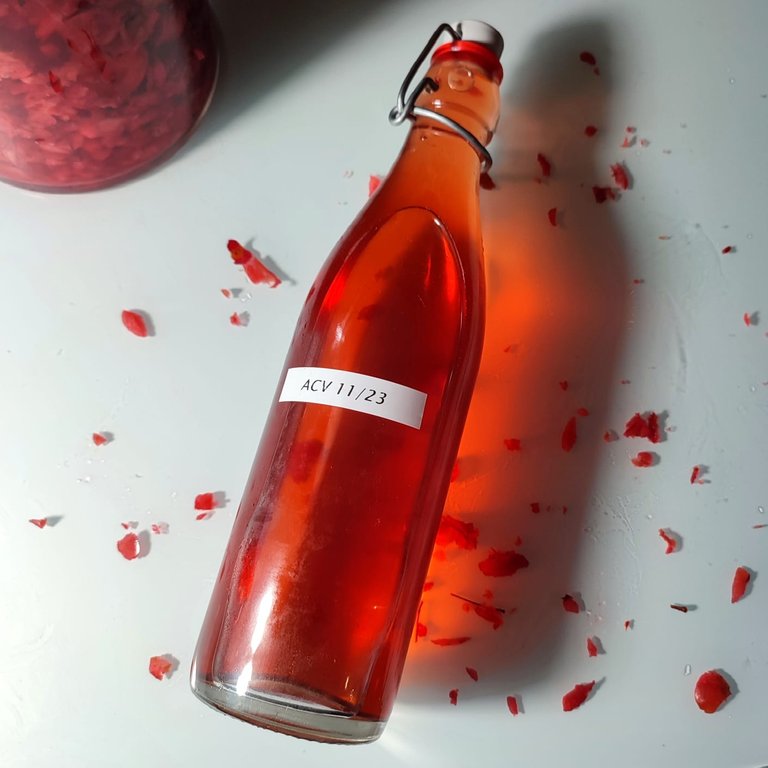
Once you’re happy with the taste, bottle and seal the vinegar. Store the bottles in a cool, dark place, like a pantry or cupboard. Properly sealed, it will keep for months, even years.
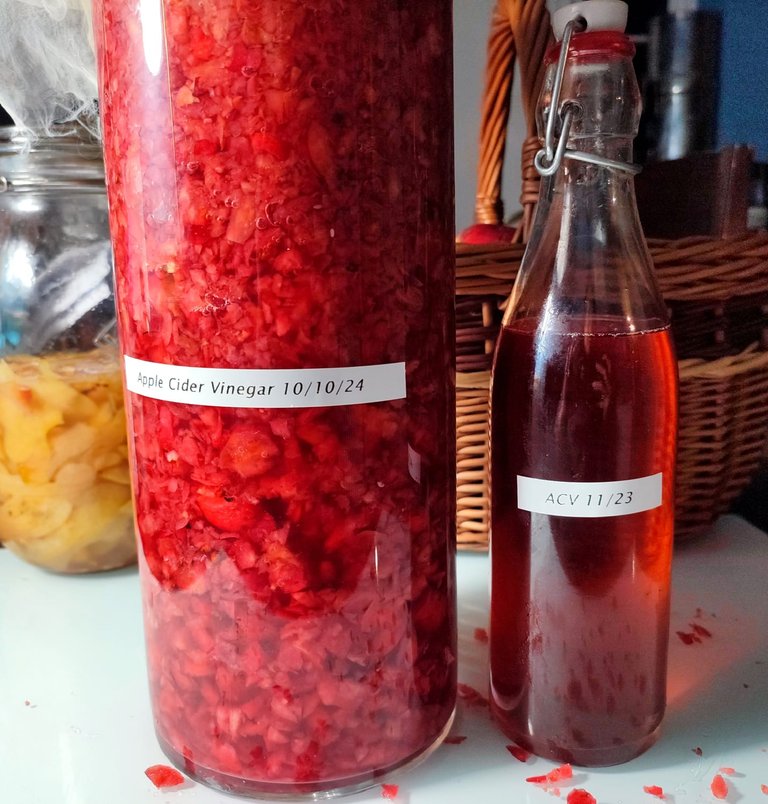
This bottle is a leftover from last year, same crab apples, and it is a unique vinegar! Very concentrated.
I find that crab apple vinegar brings a unique touch to my skincare and haircare products. The tartness and richness of the crab apples offer a distinct quality, making it a beautiful ingredient for preserving and cooking, compared to commercial apple cider vinegar.
I hope I’ve inspired you to pick some crab apples and make your own vinegar!
Have a lovely day,
Mariah 😊💗